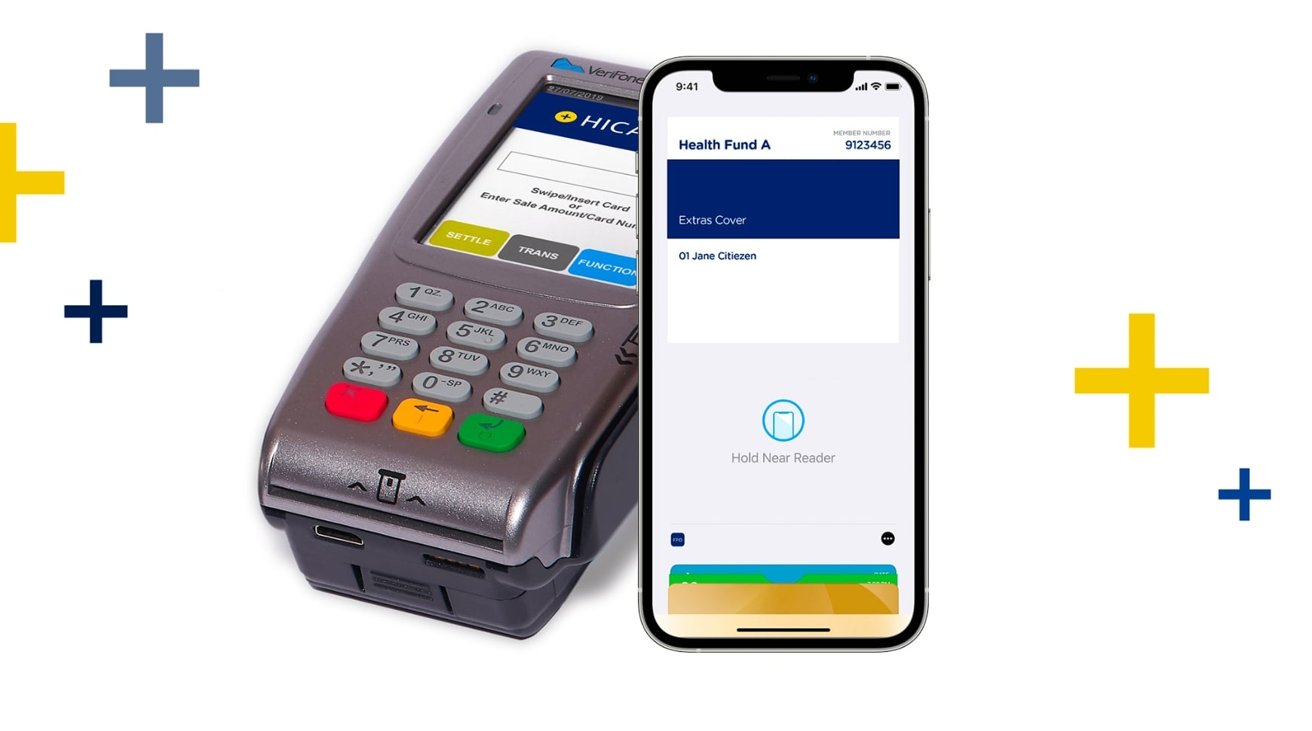Australian iPhone users will be able to use their mobile devices as part of their healthcare experience, with HICAPS practitioners in the country now accepting digital health insurance cards held in Apple Wallet.
The change for HICAPS (Health Industry Claims and Payments Service) simplifies the claims process for Australian clients. Members of Medibank, Bupa, nib, and GU Health can now download their digital membership card from their health fund app, and add it to Apple Wallet.
Rather than swiping a plastic card, users will instead be able to tap their iPhone or Apple Watch on any HICAPS terminal to make a claim. Real-time notifications will be provided to the user, provided via their health fund's app.
As is standard for Apple's products and services, security and privacy are maintained with the new system. The health insurance membership card's customer identifier number is encrypted during transmission to the HICAPS terminal, before being decrypted and passed along to the customer's health insurer.
HICAPS terminals are found at over 25,000 healthcare practices and medical centers across Australia, and process over 114,000 claims every day.
According to NAB Executive for Business Everyday Banking Tania Motton, "Claims made using this method help reduce the time spent on manual processing for practitioners due to forgotten plastic cards, while putting money back in customers' bank accounts quicker."
 Malcolm Owen
Malcolm Owen








 Andrew Orr
Andrew Orr
 Mike Wuerthele
Mike Wuerthele
 Bon Adamson
Bon Adamson
 Marko Zivkovic
Marko Zivkovic
 Wesley Hilliard
Wesley Hilliard
 Amber Neely
Amber Neely





-m.jpg)



7 Comments
HICAPS machines are at almost every doctor/GP clinic dentist, chiropractor, physiotherapist, remedial massage practitioner in Australia. They look like a credit card terminal.
“have you got your private healthcare card?”
”yep”
Swipe card through HICAPS machine.
”HBF (my private health fund provider) has covered $27”($20 USD)
Apple Pay via your credit card and it charges you the gap payment of $25 ($18 USD)
”Thank you you, have a nice day”
”Thanks” Some Australian states have digital wallet versions of your drivers licence too. I’d say not carrying a wallet at all will be truely feasible in 2-3 years.
On the matter of different health systems, Australia really does have a good mix of public and private.
An all public system, eg the UK NHS, manages demand through queues (waiting lists). That sucks.
an all private system (eg the US) manages demand via price. That sucks too.
A mixed system means that if the waiting list is too long for ones’ taste, you can just pay for it (or use your private insurer). This also means the pressure on waiting lists in the public system is shorter than it would otherwise be for those that can’t afford the private option.
the other thing about the US I find weird is the linkage of health insurance with the employer. That should not be the case, the relationship should be with the customer consumer. decoupling that little relationship should be the priority. Employers could still pay for the insurance as part of the package. But taking out the insurance should be up to the individual they do directly with the insurer.
Just set myself up with Medibank Private. The app sets you up in Apple wallet, can manage the rest of the family too. Quite easy.
A great feature as I almost never carry the card with me, or someone else has it after using it.